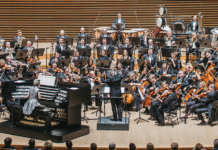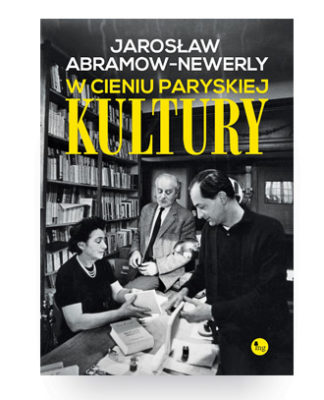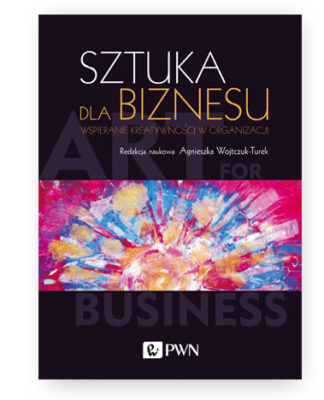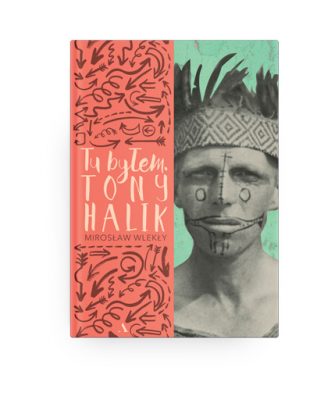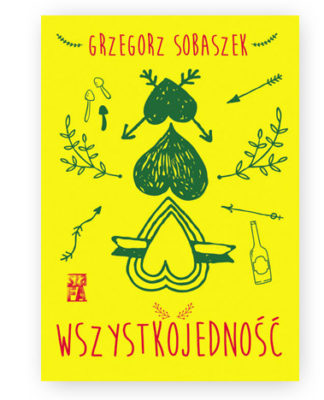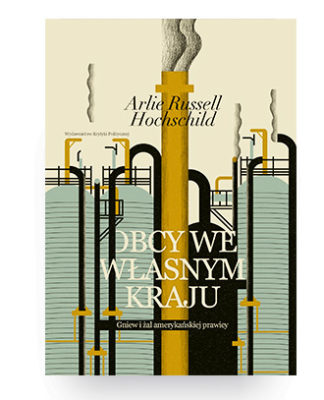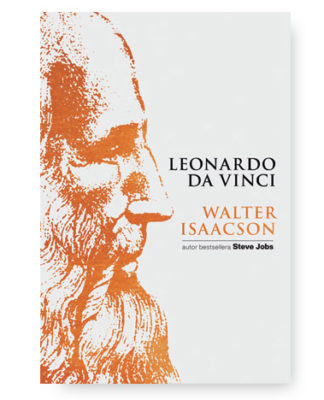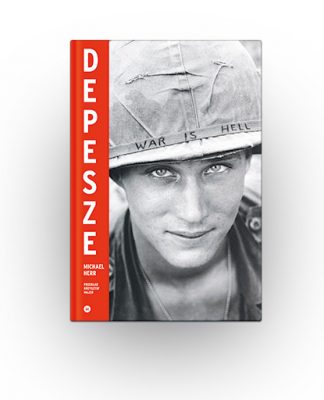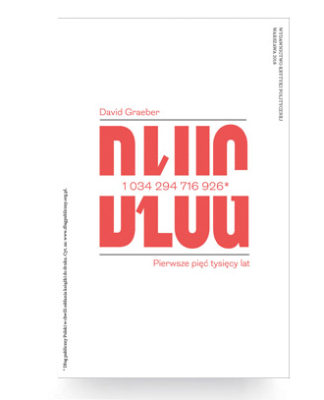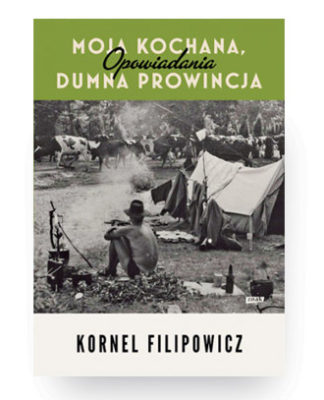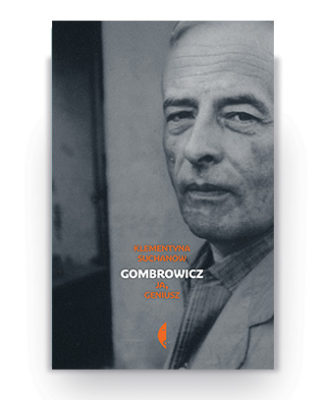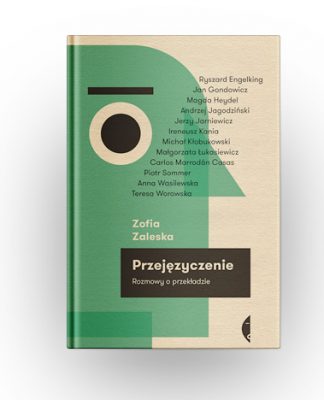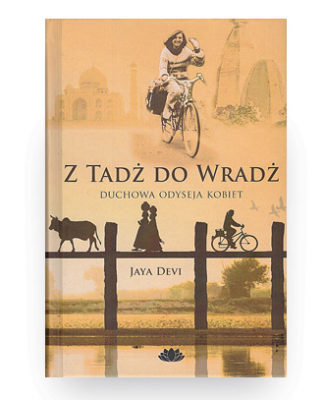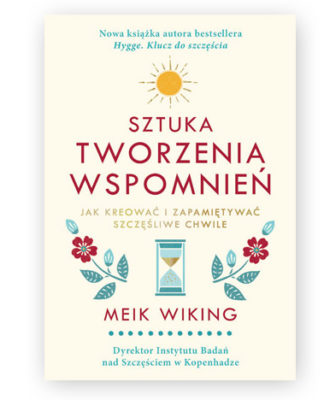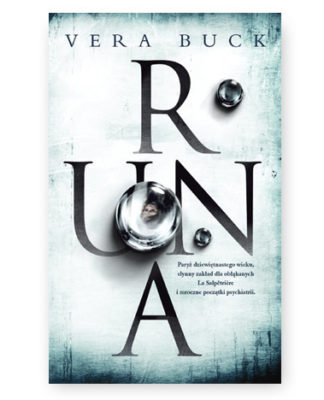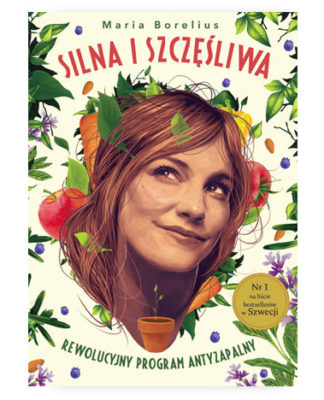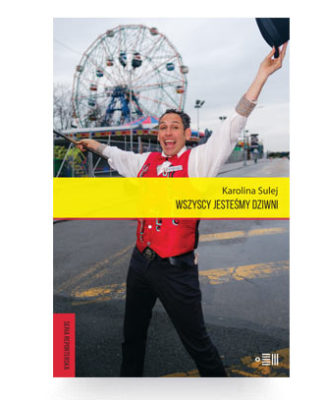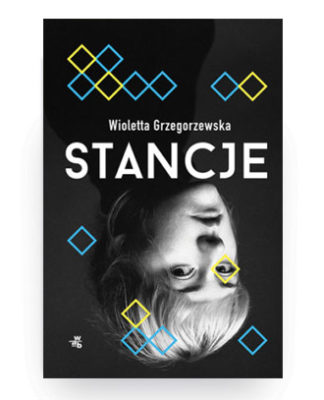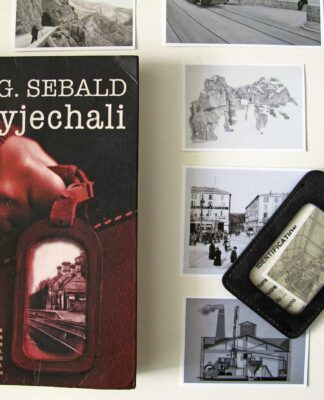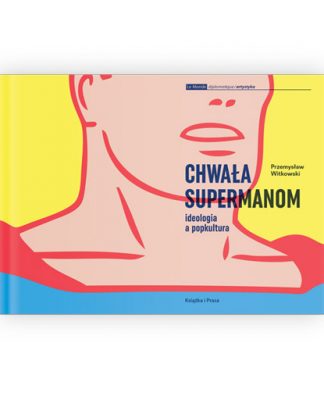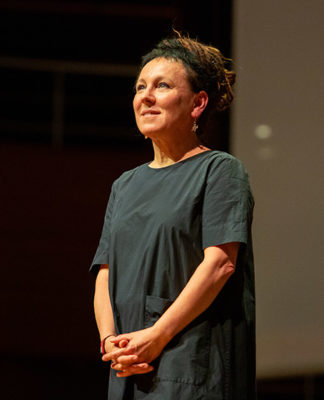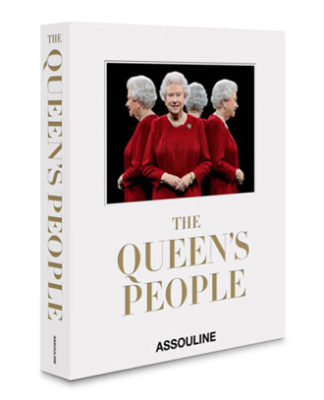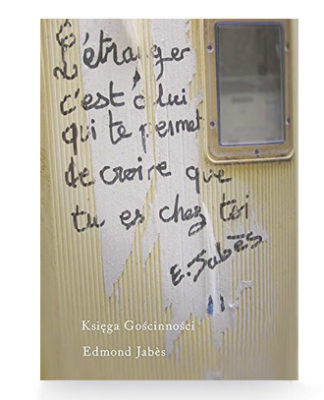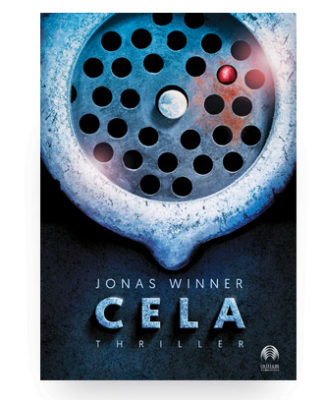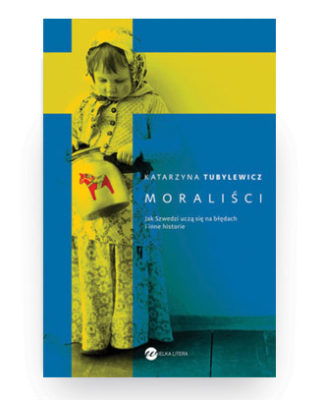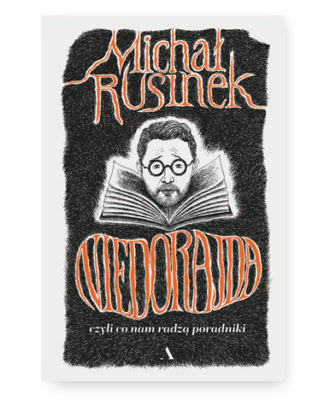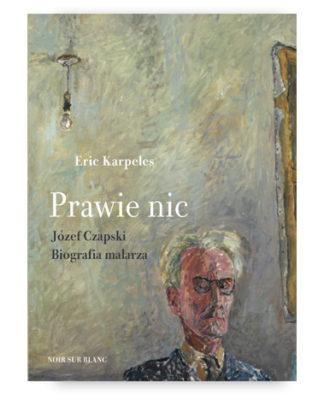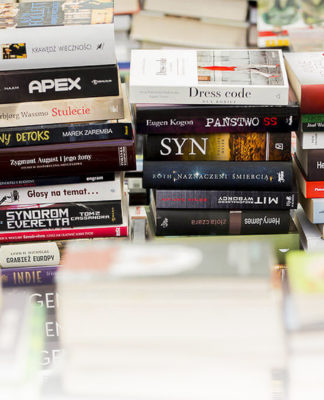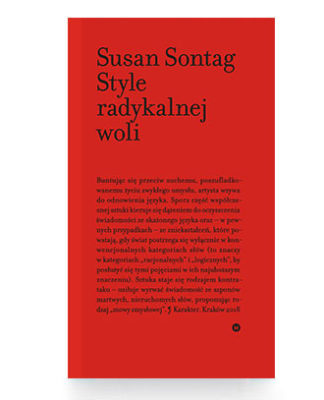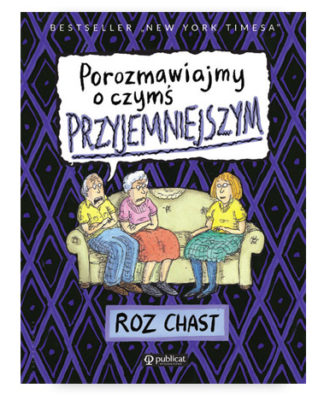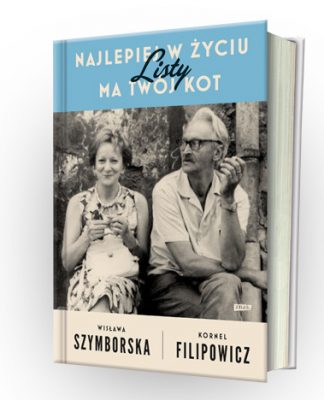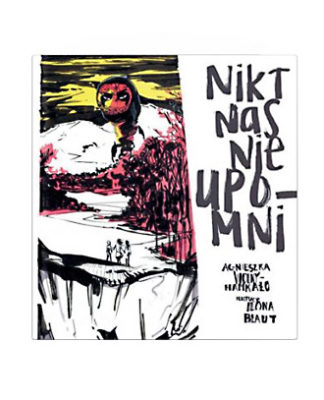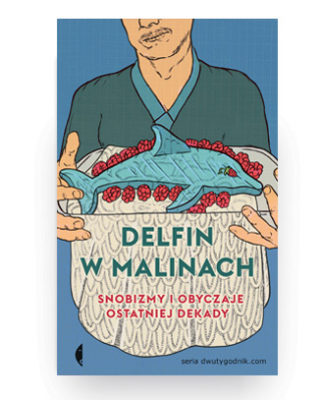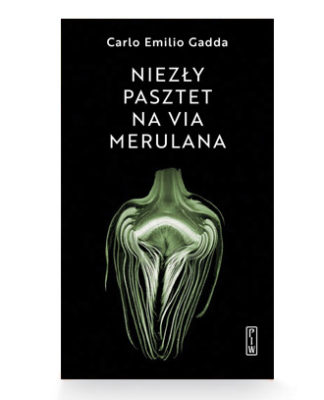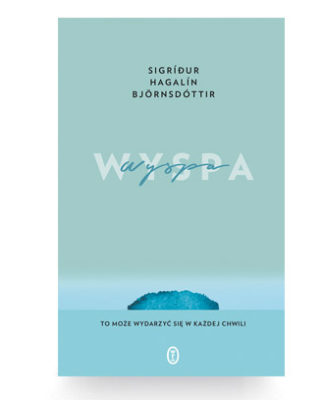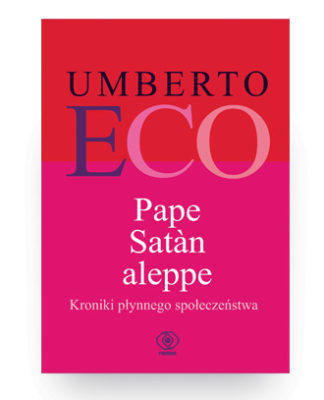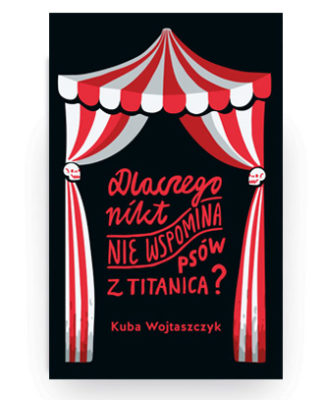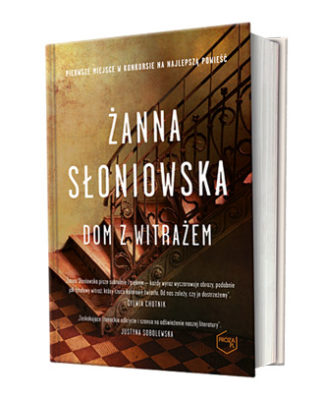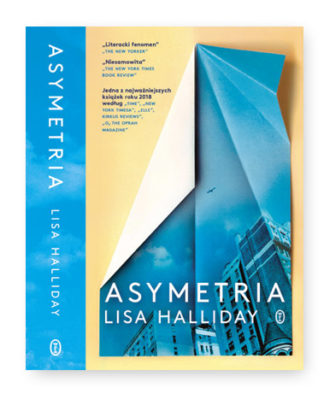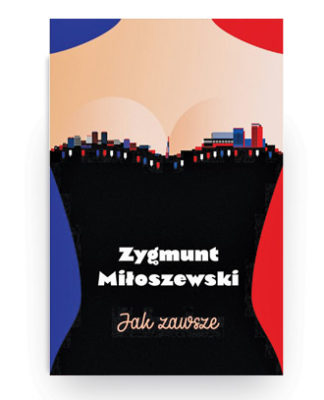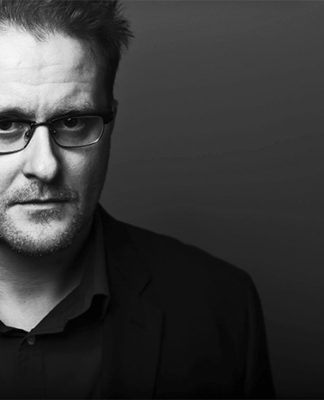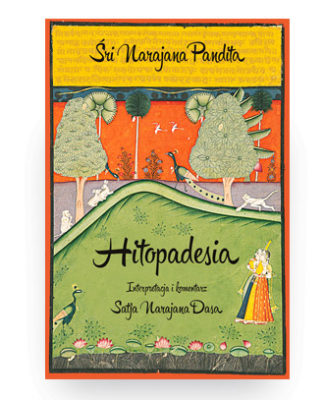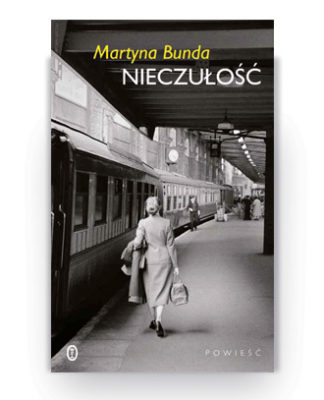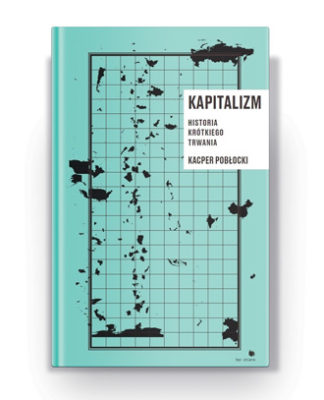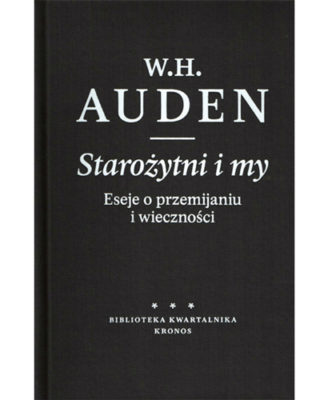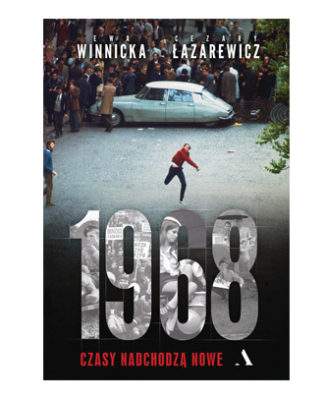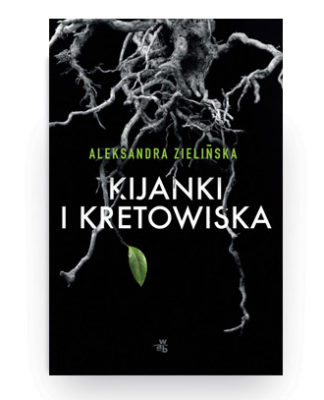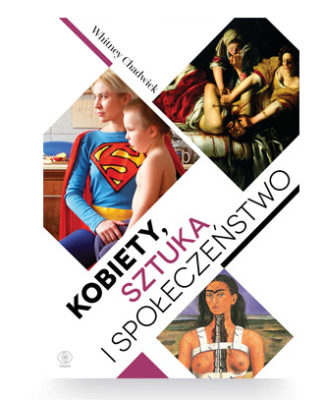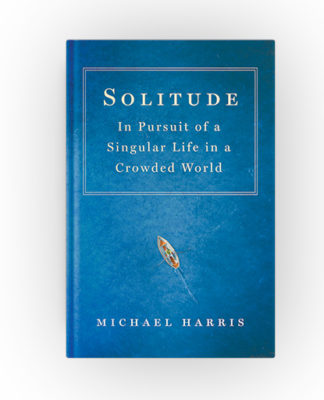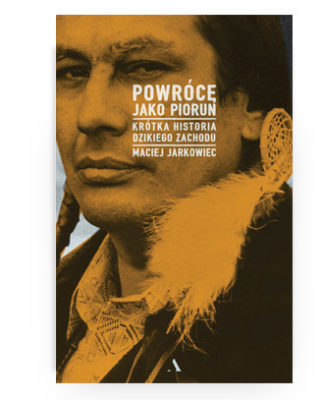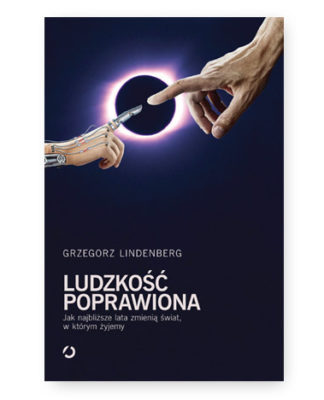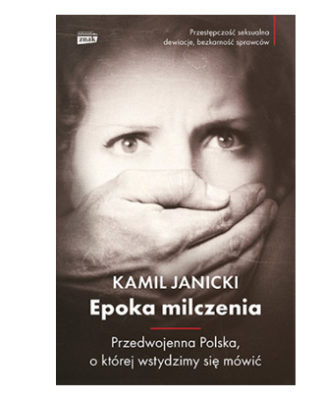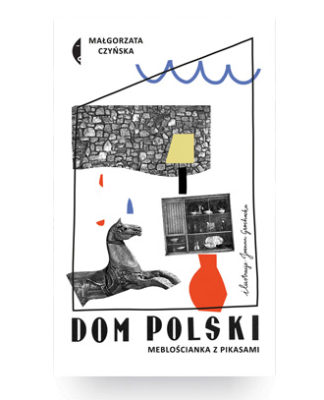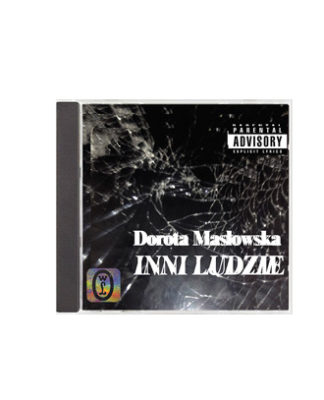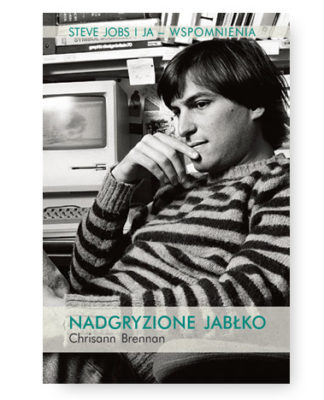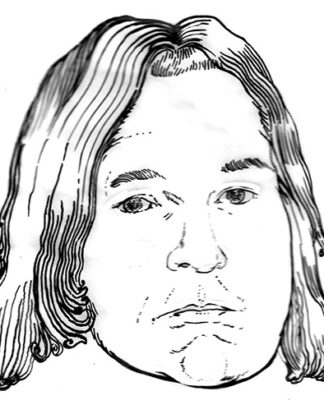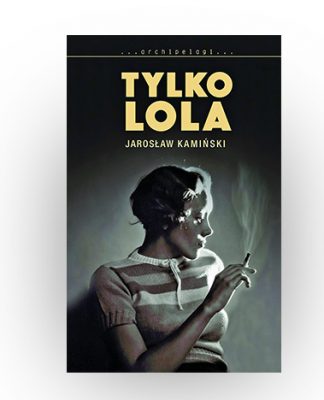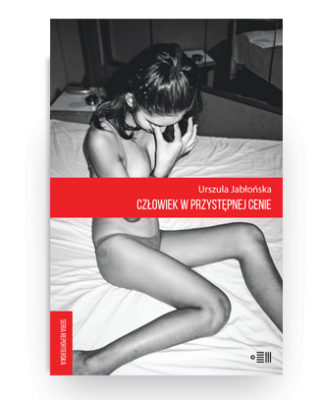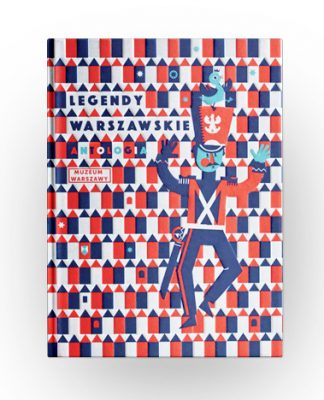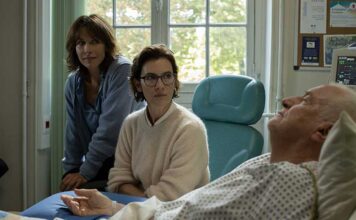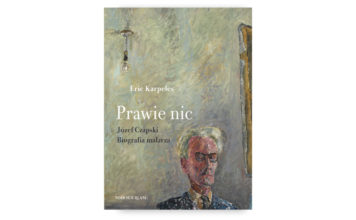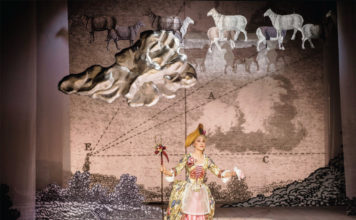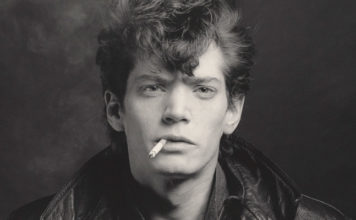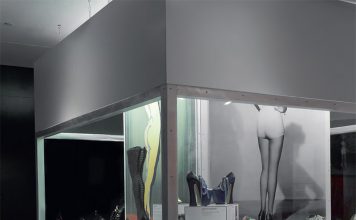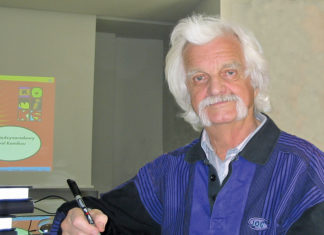Scenograf, manager, poliglota. Urodzony w Zurychu, wychowany w Sydney, zakochany w Warszawie. O zaklętej w genach fascynacji Polską, roli intuicji w podejmowaniu decyzji i o tym, co wspólnego ma teatr z polityką, opowiada Jansson Antmann*.
Tekst: Anna Dudek
Słyniesz z szybko podejmowanych decyzji. Która była najbardziej spektakularna?
Z perspektywy lat myślę, że ta, która dotyczyła przeprowadzki do Warszawy. Inne decyzje nie do końca były moje, niekiedy powodowały je okoliczności, które wymagały błyskawicznego reagowania – bywało, że dramatyczne, życiowe. A z Warszawą było emocjonalnie, szaleńczo, impulsywnie – zakochałem się w tym mieście.
Warszawa miała sporą konkurencję u urodzonego w Zurychu obywatela Australii z czeskim paszportem. Który w dodatku ubóstwia Rzym i Nowy Jork. Czym cię urzekła?
Może to wariackie, ale czuję, że będąc w Warszawie jestem trochę i w Madrycie, i w Moskwie, i w Nowym Jorku, bo każda z dzielnic jest zupełnie różna od tej, która z nią sąsiaduje. Chwilami, idąc Bracką, czułem się jak w Nowym Jorku, i nie mam tu na myśli tylko architektury, ale też ludzi i styl życia. Wiem, że teraz Polska jawi się światu jako drugie Węgry Orbana, zamknięta i coraz bardziej obca, ale ja pamiętam ją jako różnorodną, otwartą. Tu byłem najszczęśliwszy. Tu znalazłem swój europejski dom.
Miejsce to też ludzie.
W Stanach Zjednoczonych czy Czechach, pokutują bardzo brzydkie stereotypy o Polakach. Miałem to w głowie, kiedy zaczynałem tu mieszkać.
I? Tacy straszni ci Polacy?
W Warszawie okazało się, że to nieprawda. Powiem tak: mieszkałem w Warszawie siedem lat i Polska to jedyny kraj, który mnie nie rozczarował. Jeden z powodów to na pewno, to wasze mówienie wprost. Nikt nie owija w bawełnę, jak coś myśli, to mówi. Dzięki temu zawsze wiedziałem, na kogo mogę liczyć, komu ufać. Zobacz zresztą, ta Polska ciągle we mnie jest, mam właśnie za plecami kościół St. Mary w Sydney z pomnikiem Jana Pawła II. Polska żyje w Sydney (śmiech).
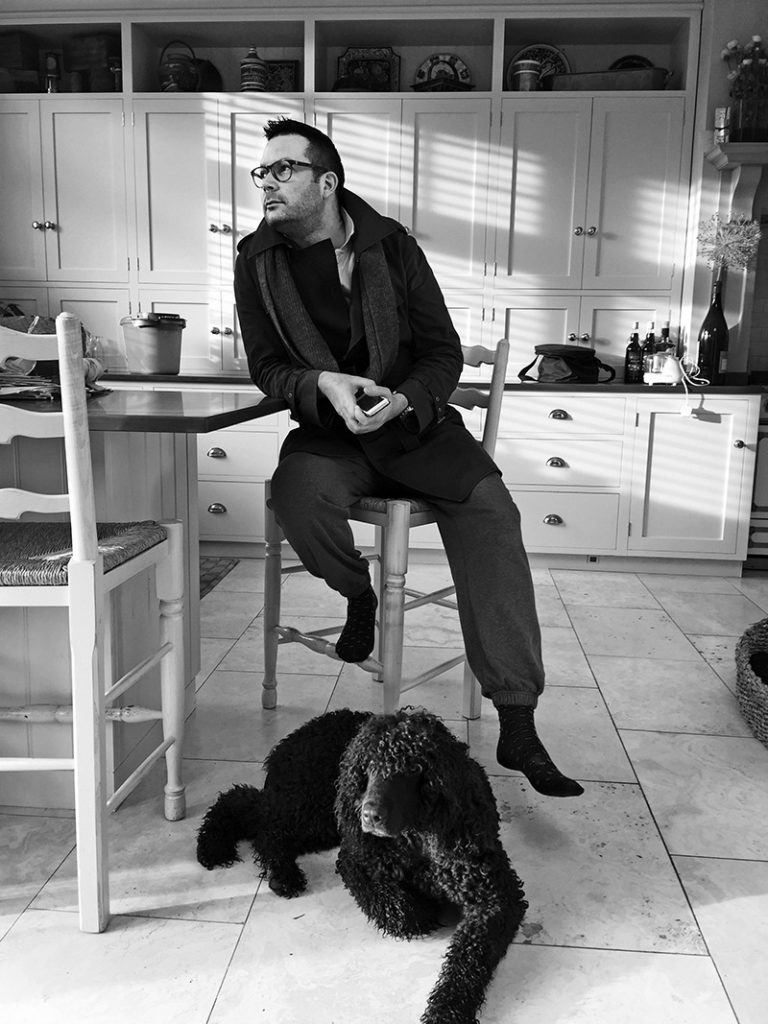
Papież Polak, bezpośredniość, migawki z innych miejsc. Z czym jeszcze kojarzy ci się Polska? Warszawa jest raczej przaśna czy może kosmopolityczna? A może i jedno i drugie?
Zdecydowanie kosmopolityczna. Z mojego doświadczenia wynika, że ludzie, którzy tracą wszystko, uczą się radzić sobie lepiej za mniej. Tak samo jest z Warszawą. Stolica zawstydza inne miasta w krajach o szczęśliwszej przeszłości. Mówiąc wprost, Warszawa to piękne miasto. Łódź też. Miłośnicy architektury secesyjnej nie powinni tego przegapić. Łódź to druga Ryga! Moje polskie wspomnienia to seria pięknych pocztówek z Sopotu, Wrocławia, Nieborowa, Kazimierza Dolnego. Tak wiele miejsc, które uwielbiałem odwiedzać. Miałem ogromne szczęście, że gdy mieszkałem w Polsce, rzadko spędzałem weekend w Warszawie. Myślę, że odwiedziłem prawie cały kraj. Mam i piękne wspomnienia z Wilczego Szańca. Kocham beton. Pewnie dlatego też lubię brutalistyczną architekturę. Lubię bryle echa przeszłości. Zauważyłem, że Polacy są narodem bardzo literackim i mają zdrowy szacunek dla swojej historii i tradycji. Tęsknię za tym. Są też impulsywni, co lubię, nawet jeśli może to być ryzykowne.
Szybkie decyzje dotyczyły też biznesu. To kwestia intuicji czy kalkulacji?
Moim zdaniem jedno nie istnieje bez drugiego. Intuicja gra pewną rolę, ale bywa, że zawodzi. Dlatego ważne jest rozpoznanie sytuacji, bo tylko dzięki znajomości jak największej liczby zmiennych, można skalkulować ryzyko. Dziś robię to podświadomie, ale być może nauczyłem się tego podczas pracy dla rządu.
Dla scenografa, którym jesteś z wykształcenia, i dla dyrektora kreatywnego agencji reklamowej, którym długo byłeś w zawodowym życiu, świat polityki wydaje się przeciwległym biegunem. Jak tam trafiłeś?
Trochę tak się złożyło. W 2003 roku wróciłem do Australii. To był czas, kiedy rząd szukał specjalistów od komunikacji i marketingu, bo zdano sobie sprawę, że zaczęła się rewolucja technologiczna, a co za tym idzie – komunikacyjna. Zaczął się nowy świat, a rządowi potrzebni byli ludzie, którzy go rozumieli. A ja, dzięki temu, że pracowałem jako dyrektor kreatywny w agencji marketingowej, miałem potrzebne doświadczenie. Wiedziałem też, że to rewolucja, która dotyczy nie tylko marketingu i promocji, ale też wszystkich innych dziedzin.
A wracając do pytania – choć pozornie może się wydawać, że polityka, i to czym się zajmowałem dla rządu, i scenografia, to faktycznie inne bieguny, dla mnie to było naturalne przejście. Jako scenograf tworzysz coś nowego albo na nowo interpretujesz istniejące elementy. W komunikacji, przynajmniej w tamtym okresie, było tak samo.
W dodatku to coś zupełnie innego niż realne, namacalne życie.
Jedno i drugie zajęcie wymaga kreatywności, bo budujesz zupełnie nowy, inny świat. Niejako równoległy do tego za oknem.
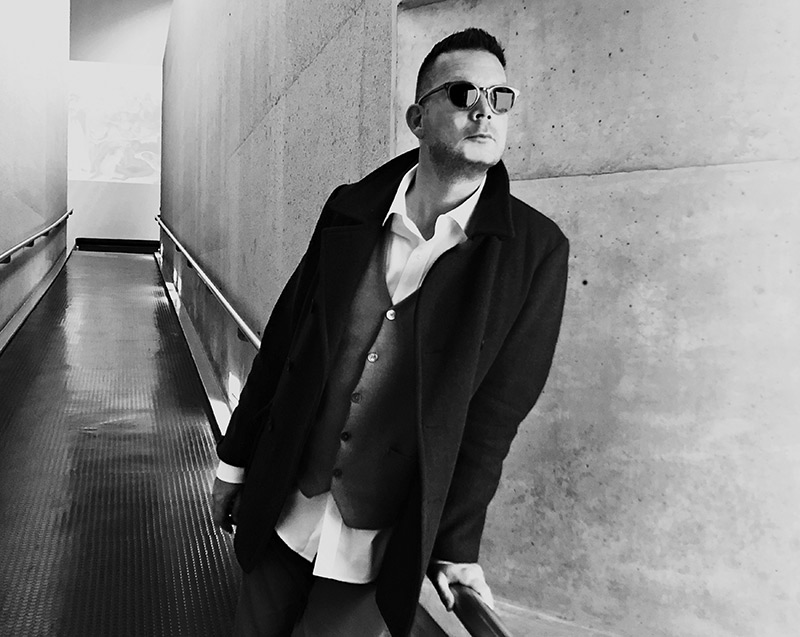
Skoro o równoległych światach mowa. Pogadajmy o luksusie. Piszesz piórem Mont Blanc, nosisz starą Omegę, lubisz ubrania od Armaniego i zakupy na via Condotti w Rzymie. To snobizm czy szacunek dla jakości?
Jakość jest dla mnie najważniejsza. Nie jestem snobem, choć zdaję sobie sprawę, że wiele osób tak mnie postrzega. Ale dlaczego, bo lubię chodzić do opery? Wiesz, dla mnie naprawdę nie ma znaczenia, czym zajmuje się artysta. Chodzi o jakość jego pracy. Nie podejrzewałbym się o entuzjazm dla muzyki country, a jednak byłem absolutnie zahipnotyzowany występem wokalistki Wynonny Judd w Las Vegas. Szanuję i doceniam jeśli artysta jest mistrzem w swojej dziedzinie. Więc tak, zawsze chodzi o jakość. A w tym świecie, który już nie szanuje rzemiosła, bo liczy się prędkość, jakość można znaleźć tylko w luksusie.
Smutna wiadomość dla 99 proc. ludzkości.
Bardzo. Bo luksus, w bardzo wielu sensach, należy się każdemu. Ale znowu przeniosę to na sztukę: dla mnie takim luksusem jest też pójście do opery. A wiesz, że są w Sydney ludzie, którzy w życiu – mieszkając tu całe życie – nie byli w operze w Sydney, tylko gapią się na fasadę tego budynku i piją piwo w pubie obok? Świadomie rezygnują z jakości, która jest w zasięgu ręki.
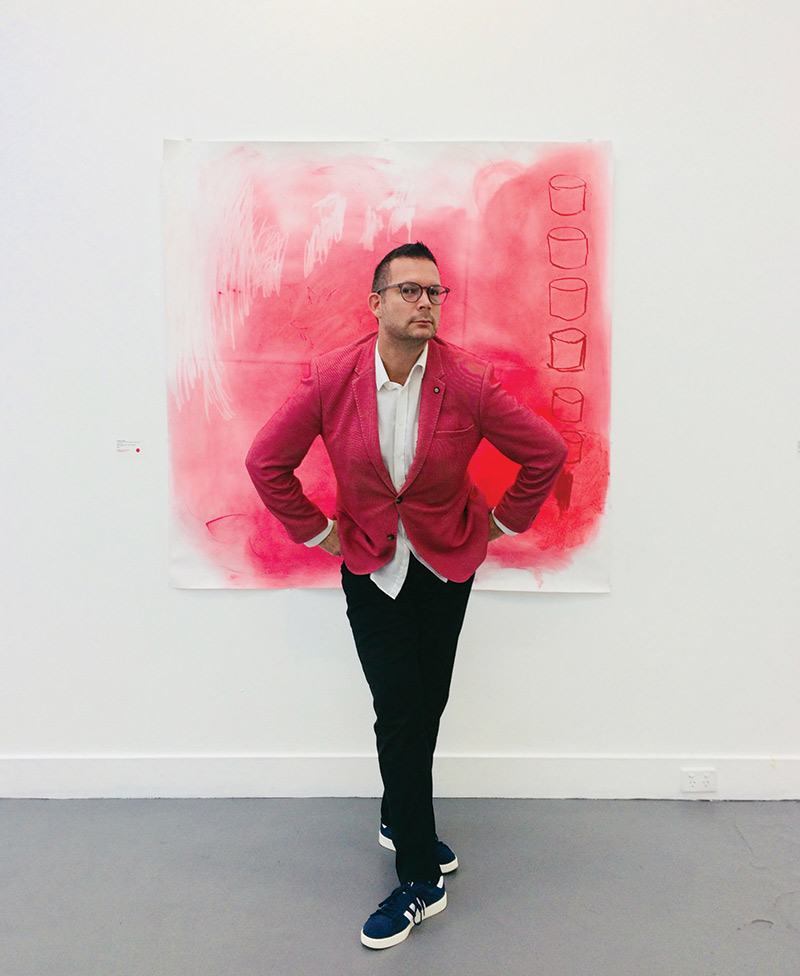
Mówisz ze stołka elitarysty. Już jako czterolatka, mama zabierała cię na balet w Zurychu.
No tak, zgoda, ale także i nie. Moja mama uczyła się śpiewu operowego w praskim konserwatorium i może między innymi stąd wzięła się moja miłość do opery. Ale nie ignorujmy faktu, że po wyemigrowaniu stała się gwiazdą popu. Ale nie mogę zaprzeczyć, że mam to w mojej krwi. Jeden z dziadków był jubilerem, drugi – Jan Gillar – współtwórcą funkcjonalizmu w architekturze. Te fascynacje sztuką dostałem niejako w genach, i za to jestem rodzicom i dziadkom bardzo wdzięczny, bo to najpiękniejsze rzeczy, jakie istnieją na świecie.
Skoro o genach mowach. Ta Polska była w tobie wcześniej.
Już po przyjeździe do Polski dowiedziałem się, że mój pradziadek pochodził z Przemyśla, więc tak myślę, że trwała we mnie uśpiona, utajona miłość do tego kraju. Wcześniej sądziłem, że historia mojej rodziny związana jest z Czechosłowacją, a jedyny polski epizod miał wymiar i historyczny i tragiczny. Choć z cieniem łutu szczęścia w tym dramacie.
Mówisz o dziadku i jego losach w latach 40.
Mój dziadek był tym słynnym jubilerem z Majdanka, który przeżył obóz tylko dlatego, że miał nazwisko na „A“, wysoko na liście systemu, któremu akurat brakowało jubilera, który umiałby wyjąć złoto z zębów skazanych na śmierć (wśród nich byli jego własni krewni), i je wycenić. Nie brakowało w historii rodziny dramatycznych zwrotów. Stąd mam pewnie i wrażliwość, i szacunek dla ludzi. I dla sztuki w szerokim sensie, jak na przykład graffiti na ścianach tej ulicy. Uwielbiam cały street art.
Podział na wysoką i niską kulturę wciąż ma sens?
Nie podoba mi się szczególnie określenie „niska kultura”. Moim zdaniem kultura jest smorgasbordem wielu smaków, co widać coraz wyraźniej. Dziś australijski reżyser operowy, Barrie Kosky, robi furorę dzięki swojemu stylowi wizualnemu, który opiera się na kulturze popularnej i awangardzie. Powiedział nawet, że prezentacja oper w namiotach cyrkowych jest drogą przyszłości. Sarah Brightman wypełnia stadiony piłkarskie na całym świecie, śpiewając Dvořáka i Borodina wraz z Heavy Metalem i Queen. Nawet miłośnik rapu może kochać operę, co pokazuje sukces musicalu „Hamilton“ na Brodwayu, który w tym wydaniu jest rapowaną historią Ameryki. Zresztą, to się zawsze przeplatało, bo przecież Szekspir pisał i dla elit, i dla tzw. gawiedzi. Na balkonach siedzieli bogaci i uprzywilejowani, na dole stali z piwem w ręce i kawałkiem wieprzowiny ci, którzy tych przywilejów mieli mniej. Każdy przyszedł po rozrywkę. Dziś takich artystycznych miksów jest coraz więcej. I dobrze. |
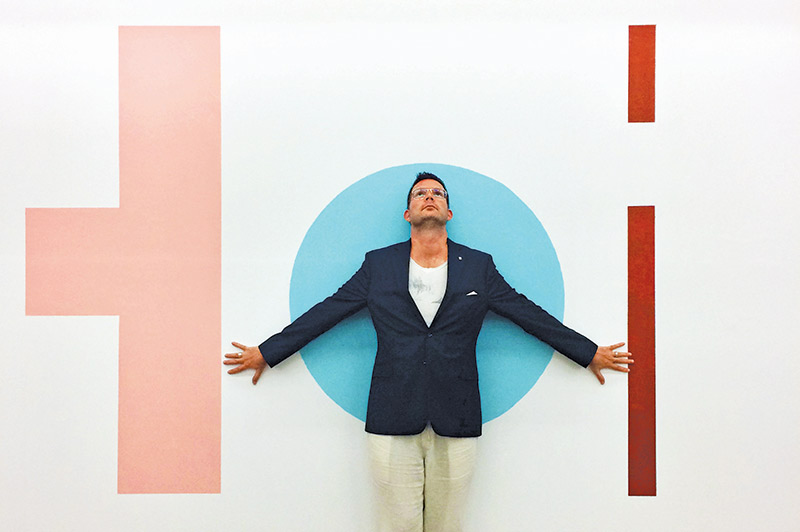
*Jansson Antmann – australijski scenograf i manager, konsultant w zakresie komunikacji i marketingu i… nasz były redaktor naczelny. Pracował dla największych korporacji i agencji kreatywnych oraz dla australijskiego rządu. Prywatnie: miłośnik opery, fan street artu, podróżnik.
![]()
Warsaw puts other cities to shame
Production designer, manager, polyglot. Born in Zurich, brought up in Sydney and in love with Warsaw, Jansson Antmann* talks to us about his genetic susceptibility to the charms of Poland, intuitive decision-making and what theatre and politics have in common.
Text: Anna Dudek
You are known for making quick decisions. Which one stands out the most?
Looking back over the years, the decision to move to Warsaw. Other decisions weren’t necessarily only of my own making. Some were a matter of circumstance which demanded a rapid response. They were often dramatic. You know, matters of life and death. Warsaw, on the other hand was an emotional, crazy and impulsive choice. Frankly, I fell in love with the city.
Surely Warsaw wasn’t the only option for an Australian born in Zurich with a Czech passport and a love for Rome and New York! What attracted you to Warsaw?
It may sound crazy, but when I’m in Warsaw, I feel that I’m in Madrid one moment and Moscow the next. The city changes from one moment to the next. At times, when I was walking along Bracka Street, I felt like I was in New York, and I’m not just talking about the architecture, but the people and lifestyle as well. I know that these days Poland is looking more and more like Orbán’s Hungary – shut off and alienating – but I remember it as diverse and open. I was at my happiest there. I‘d found my European home.
A place is only as good as the people in it, surely.
When I started living in Warsaw, I was well aware of the fact that ‘Polak‘ is a derogatory word in the USA and there is a lot of negative stereotyping of Poles by both Czechs and Americans.
And are Poles that bad?
My experience in Warsaw proved otherwise. Let me put it this way: I lived in Warsaw for seven years and Poland turned out to be the only country that didn’t end up disappointing me. One of the reasons is definitely the Polish tendency to say it like it is. You are straight shooters. There’s no beating about the bush. Poles say what they mean. As a result I knew whom I could count on and trust. Look! I haven’t even been able to leave Poland behind. We are outside St. Mary’s Cathedral in Sydney and look who’s here! It’s a monument to Pope John Paul II. Poland is alive and well in Sydney! [laughs]

A Polish Pope, straight talkers, shades of elsewhere. What else do you associate with Poland? Warsaw is more unrefined than cosmopolitan, isn’t it? Or is it? Or both?
It’s definitely cosmopolitan! Life has taught me that people who lose everything learn how to do a whole lot more with a lot less. It’s the same with Warsaw. In fact, the capital puts to shame cities in countries with a far more fortunate past. Honestly, Warsaw is a beautiful city. So is Łódź. Lovers of Art Nouveau architecture can’t afford to miss it. Łódź is the other Riga! My Polish memories are a series of beautiful postcards from Sopot, Wrocław, Nieborów, Kazimierz Dolny, so many places I loved to visit. I was very fortunate that when I lived in Poland, I hardly spent a weekend in Warsaw. I think I visited virtually the entire country. I even have beautiful memories from the Wolf’s Lair. I love concrete. That’s probably why I like brutalist architecture. I like solid echoes of the past. I’ve noticed that Poles are a very literary nation with a healthy respect for their history and traditions. I miss that. They’re also impulsive, which appeals to me, even though that comes with its fair share of risks.
Quick thinking is part of business too. Is it a question of intuition or calculation?
I don’t think you can have one without the other. Intuition plays a role, but it can also lead you astray. Therefore it’s important to analyse any given situation and assess all the variables so that you can identify the risks involved. Today I do that subconsciously, but I suspect I honed that skill during my work for the government.
You trained as a set and costume designer for the theatre and you worked as a creative director in advertising for a long time. Politics seems to come out of left field. How did you end up there?
It simply worked out that way. I returned to Australia in 2003 at a time when the government was looking for marketing specialists, who could navigate their way around the technological revolution that was unfolding and its subsequent impact on the way we communicate. It was a new dawn and the government needed people who understood that. Thanks to the fact that I had worked as a creative director in a global interactive marketing agency, I had the credentials. I recognised that this revolution wouldn’t only affect marketing, but every aspect of our lives.
Returning to the crux of the matter – although it may seem that what I did for the government, politics and set design are poles apart, for me it was a natural transition. As a set designer, you create something new or reinterpret what we see around us. In marketing and communication, at least at that time, it was much the same.
Moreover, something completely different to our real, tangible lives.
Both jobs require creativity, because you are building a completely new, other world – one that exists somewhat in parallel to the one you can see outside your window.

Since we’re on the subject of parallel worlds, let’s talk about luxury. You write with a Mont Blanc, you wear a vintage Omega, you like Armani and shopping on the Via dei Condotti. Is that snobbery or respect for quality?
Quality is something I value above all. I’m no snob, although I know some people think I am. Why? Because I like the opera? You know, it really doesn’t matter to me what an artist does. It’s all about the quality of the work. You wouldn’t think I was a country music fan, but I was in total awe of Wynonna Judd when I saw her perform live in Las Vegas. I have nothing but respect for the mastery of an artist in any field. So yes, it’s all about quality and in this world where speed is valued over craftsmanship, luxury is the domain of quality.
Bad news for 99 per cent of humanity.
Very much so. Especially since everybody should be entitled to enjoy the best quality. Look at the Arts. In my opinion opera is an example of such luxury, however there are people who have lived in Sydney all their lives and never seen a performance at the Sydney Opera House. They just stare up at the facade of that building and drink beer in the pub next door. They willfully deny themselves the luxury within their very reach.

To be fair, you are coming at this from a somewhat elitist viewpoint. After all, your mother took you to the ballet in Zurich when you were four.
Yes and no. My mother studied to be an opera singer at the Prague conservatorium. Perhaps my love of opera stemmed from this. However let’s not ignore the fact that after emigrating she became a pop star.
Of course I can’t deny it’s in my blood. One of my grandfathers was a jeweler, the other – Jan Gillar – a joint founder of Functionalism in architecture. My fascination for the Arts is definitely in my genes thanks to my parents and grandfathers, for which I am eternally grateful. After all, there is nothing finer on this earth.
Speaking of genes, Poland was a part of you a lot earlier.
I only found out that my great grandfather came for Przemyśl after I had arrived in Poland. Yes, I guess I did harbour a dormant, latent, love for the country. Prior to that I had always associated my family’s history with Czechoslovakia and the only Polish episode was a tragic one, albeit with a touch of good fortune.
You’re talking about your grandfather’s fate in the 40’s.
Yes. He was the famous Jeweler of Majdanek, who survived the Holocaust simply because when he was interned at the concentration camp, the authorities realised they needed a jeweler who could extract the gold from the teeth of the dead, amongst them those of his own relatives. They went down the list looking for the first jeweler they could find. His surname started with the letter ‘A‘ so he was at the top of the list. There have been many twists of fate in our family. No doubt that is why I am sensitive and respectful of people. And the Arts in the broadest sense, like the graffiti on the walls of this laneway. I love street art.
Do you think the distinction between ‘high‘ and ‘low‘ culture still makes sense?
I don’t like the term ‘low culture‘. For me, culture is a smorgasbord comprising many flavours, which is increasingly evident in today’s world. Today the Australian opera director, Barrie Kosky, is creating a storm thanks to his visual style that often draws upon popular culture and the avant-garde. He’s even said that the future of opera may lie in the circus tent. Sarah Brightman fills football stadiums around the world, singing Dvořák and Borodin alongside Heavy Metal and Queen. There’s even an opera of sorts for lovers of rap with „Hamilton” on Broadway – a rapped-through musical about the history of America. The two have always been intertwined. Shakespeare wrote for the elite and for the so-called masses. The rich and privileged sat on the balconies of his Globe theatre, while downstairs those of lesser means stood with a beer in one hand and pork in the other. It was a love of entertainment that united them. Today, this artistic mix is more and more common. That’s a good thing. |

*Jansson Antmann – Australian set designer, manager, marketing and communications consultant … and our former editor-in-chief. He has worked with some of the largest corporations, creative agencies and the Australian government. Privately: an opera buff, a street art lover and traveler.








